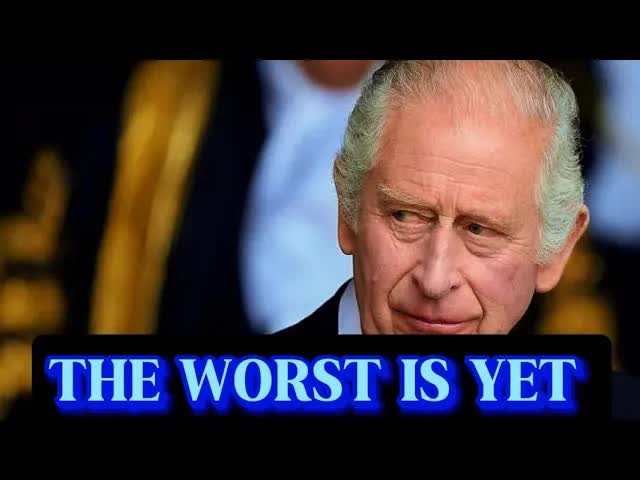King Charles III is stepping into a role that carries the weight of tradition, expectation, and an evolving global landscape.
Following in the footsteps of his mother, the legendary Queen Elizabeth II, Charles aims to maintain the same level of dedication and connection that defined her reign.
Yet, as he embarks on this journey, it’s clear that the world has transformed significantly since Elizabeth first took the throne.
Today, the Commonwealth faces a future filled with uncertainty, marked by increasing diversity and independence among its member nations.
The Commonwealth, once a monolithic entity, now comprises countries with distinct challenges and aspirations.
The rise of technology and globalization has reshaped how these nations interact with one another and with the monarchy itself.
Charles’ royal visits, while steeped in tradition, are subject to intense scrutiny.
Every gesture and word is dissected by the media and the public, placing him under a microscope as he strives to balance the old with the new.
The public’s expectations are high, especially when comparing Charles’ energy levels to those of his mother.
Queen Elizabeth was renowned for her tireless work ethic, even in her later years.
As the 73-year-old King navigates his new responsibilities, observers are keenly aware of his age, often questioning whether he can meet the rigorous demands of the monarchy.
Yet, Charles remains resolute in proving that age is merely a number, determined to forge his path while honoring the legacy of his mother.
Beneath the surface, however, a sense of change looms large.
The monarchy is evolving alongside the Commonwealth, and King Charles understands the necessity of adapting to contemporary realities while respecting the traditions that have stood the test of time.
The world is watching closely, eager to see how he will address the challenges of modern monarchy amid shifting dynamics in a globalized context.
The historical legacy of the British Empire casts a long shadow over Charles’ reign, presenting both opportunities and challenges.
He must navigate this complex history with sensitivity and foresight, balancing the hopes and expectations of a diverse Commonwealth with the realities of its past.
The public gaze is fixed on him, particularly regarding his health and vitality.
Each misstep or sign of fatigue is magnified, fueling discussions about the monarchy’s future and its perceived fragility.
King Charles’ recent trip to Samoa serves as a vivid illustration of the promise and challenges that define his reign.
His arrival was celebrated with traditional ceremonies, reflecting the island’s rich cultural heritage.
The King’s genuine interest in environmental issues resonated deeply with the Samoan people, who face existential threats from climate change.
Rising sea levels and extreme weather events are constant reminders of the urgent challenges they confront daily.
During his visit, Charles’ speeches struck a chord, emphasizing the importance of addressing climate change—a concern that weighs heavily on the minds of islanders.
However, beneath the surface, questions about the Commonwealth’s relevance continue to linger.
As Samoa navigates its future, the complexities of historical ties and modern alliances become increasingly apparent.
Once a British protectorate, Samoa has long since gained its independence, carving out a narrative of resilience and determination.
The interconnectedness of today’s world means that actions taken by one nation can reverberate across borders, especially for vulnerable island nations like Samoa.
Thus, the King’s visit highlighted the delicate balance he must maintain—honoring the past while tackling pressing contemporary issues.
The Commonwealth, as it stands, finds itself at a crossroads, grappling with its identity in a rapidly changing world.
Politico recently described it as a “sunset organization” struggling for relevance.
Originally formed as a voluntary association of former British colonies, the Commonwealth now faces an identity crisis, particularly among younger generations who have little connection to the empire’s legacy.
With its stated goals of promoting democracy, human rights, and development, the Commonwealth’s impact is often debated.
For some, it symbolizes colonialism’s painful legacy, while others view it as a platform for cooperation and cultural exchange.
As the new head of the Commonwealth, King Charles inherits this complicated legacy and faces the challenge of reconciling its troubled past with a hopeful future.
The organization’s ability to effectively address global challenges remains limited, often hindered by structural limitations and the diverse interests of its member states.
Economic disparities further complicate matters, creating stark contrasts between nations that thrive and those that struggle.
This imbalance, rooted in colonial history, continues to influence contemporary politics and social dynamics.
Moving forward, the Commonwealth must reinvent itself, finding new ways to engage its members and foster a sense of shared purpose.
Embracing diversity and promoting inclusivity will be essential as it seeks to address the pressing issues of our time.
King Charles’ leadership will be pivotal in guiding this transformation, ensuring that the Commonwealth becomes a beacon of hope and progress in the 21st century.
The path ahead may be fraught with challenges, but with determination and unity, the Commonwealth can navigate its uncertain future.
By investing in the next generation and fostering innovation, it can secure its place in a world that is continuously evolving.
The journey will require courage and vision, but the potential for a stronger, more relevant Commonwealth is within reach.
